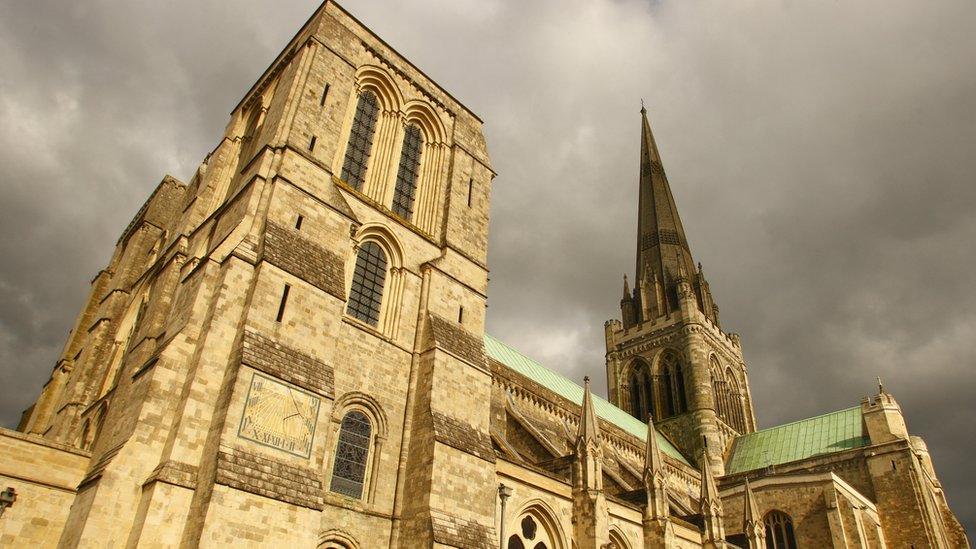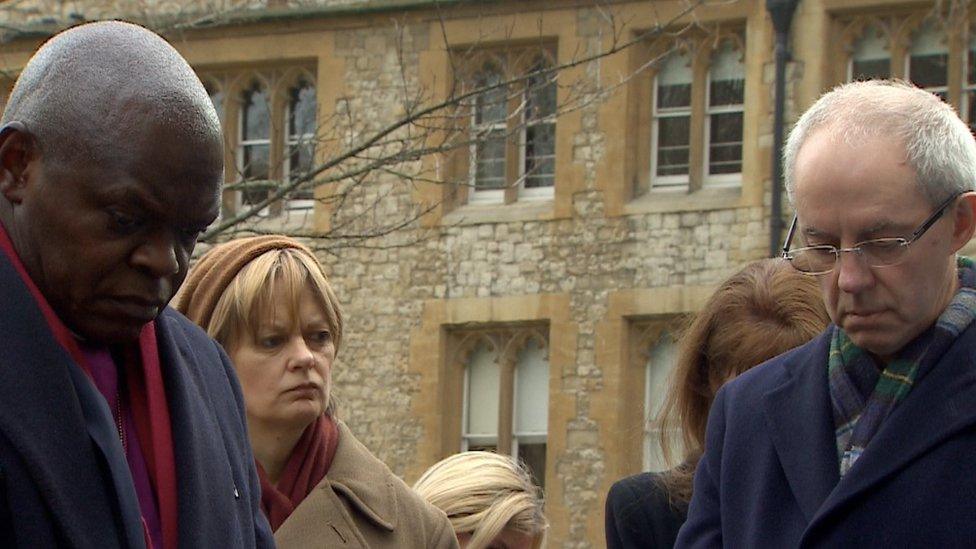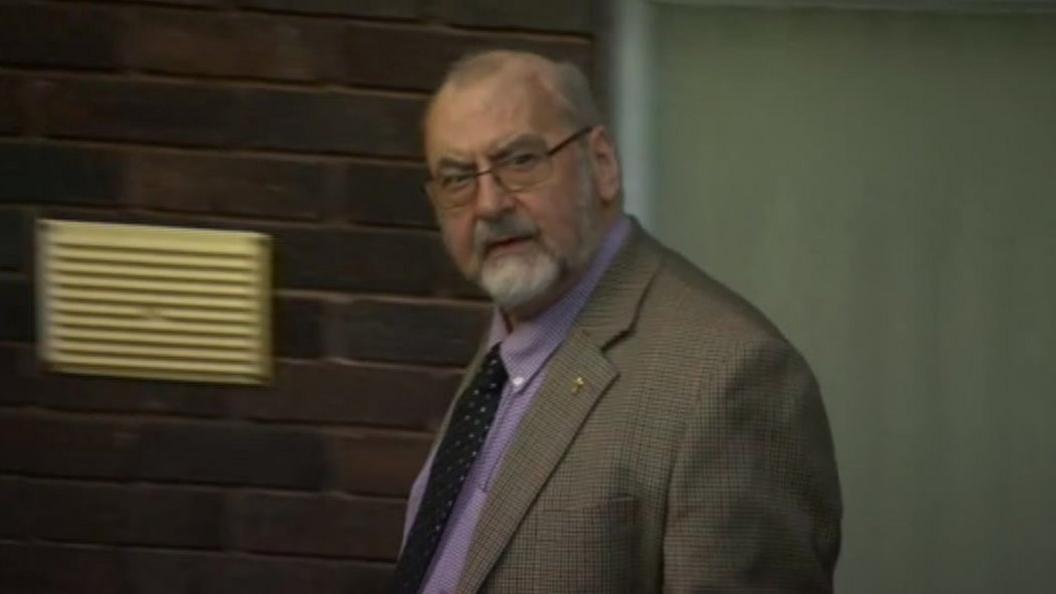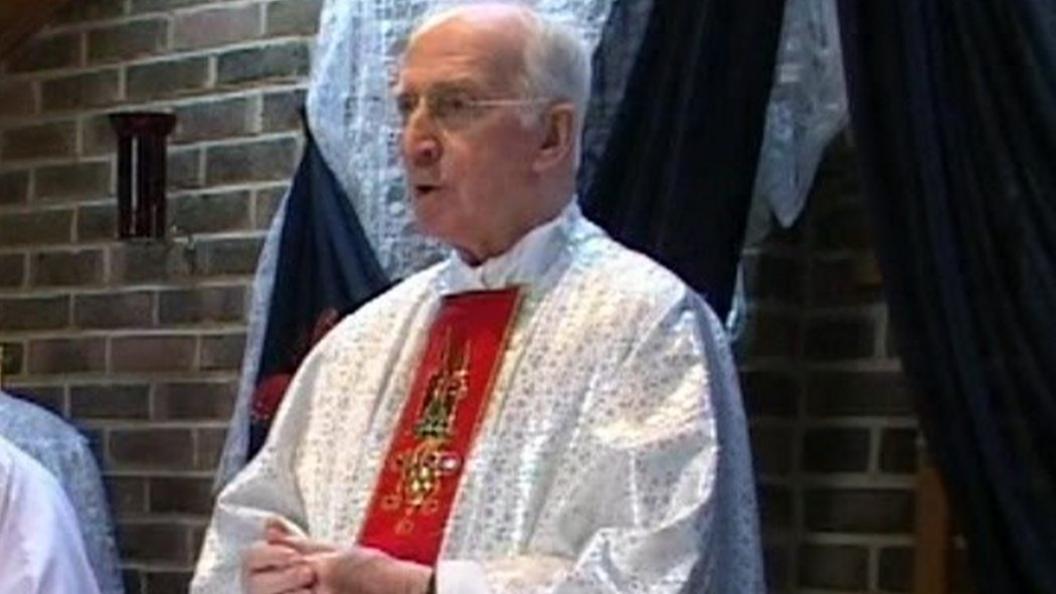Church may have 'conspired to enable child sex abuse'
- Published

The inquiry is looking into abuse in the Diocese of Chichester
Senior figures in the Church of England may have conspired to enable the sexual abuse of children, an inquiry has heard.
A lawyer representing victims suggested the Church ignored abuse convictions and allowed records to be burnt.
The solicitor, David Greenwood, said victims were "silenced" by the Church.
The Independent Inquiry into Child Sexual Abuse has begun hearing evidence about how the Anglican Church dealt with complaints over many years.
The current phase has begun with an investigation of alleged abuse in the Diocese of Chichester in Sussex.
'Painful' evidence
Mr Greenwood told the inquiry: "We will hear of bishops granting 'Permission to Officiate' certificates to convicted paedophiles and to those facing criminal allegations.
"There is a strong suspicion of an organised conspiracy between clergy and bishops in the Diocese of Chichester to enable children to be abused and it will be painful for all involved to hear."
He added: "We will hear in this Chichester inquiry of a culture in which burning paper files in the Cathedral yard was tolerated. Bishops ignoring past convictions and allegations was common place."
'Deeply shaming'
The inquiry - set up in 2015 - aims to address institutional failures to protect children in England and Wales.
Part of a witness statement from the Archbishop of Canterbury, Justin Welby, was read to the inquiry by the church's barrister, Nigel Giffin QC.
The statement said: "The failures we have seen are deeply shaming and I personally find them a cause of horror and sadness.
"That children have been abused within the communities of the church is indeed shameful."
Opening the inquiry on Monday, Fiona Scolding QC, the inquiry's counsel, said there was evidence children were made to feel responsible for abuse they suffered.
Ms Scolding said there would be evidence from witnesses about a series of potential failings within the Church.
She said they included a tendency to "make children responsible" for their sexual abuse instead of the adults around them, an inability to spot or even understand so-called "grooming" and an inability to understand that victims would suffer from the aftermath of abuse as adults.
Allegations 'engulfed' diocese
"Some of the abuse you will hear about occurred during the 1950s and 1960s, some of it is much more recent," said Ms Scolding.
"A series of allegations came to light from the late 1990s onwards and then engulfed the diocese in the first decade of the 21st century."
Ms Scolding also said that, until recently, there had been a culture of amateurism where safeguarding training was patchy and bishops with no management experience were running multi-million pound institutions.
The church, she continued, was "grappling" with disagreements over sexuality and the role of women.
She said: "What should be unique about the Church is that when faced with abuse within its own ranks, it should act with urgency, compassion, transparency and professionalism.

Analysis
By Martin Bashir, BBC Religion Editor
Unlike some of the institutions under scrutiny at the inquiry, the church faces some unique challenges not least because it relies upon thousands of unpaid volunteers.
There is also the nature of the church, which is designed to be outward facing.
In the words of a former Archbishop of Canterbury, William Temple: "The church is the only institution that exists primarily for the benefit of those who are not its members."
How the church expedites its mission of outreach, while ensuring that it is not a safe haven for paedophiles, is perhaps its greatest challenge.

"You will hear evidence that some of those qualities may have been absent in some of the response of the past."
The inquiry will look into the findings of two church-led inquiries which have become the focus of investigations by BBC South East Today.
It will also look into the cases of a significant number of Church of England clergy who have been convicted. Their cases have also been repeatedly investigated by the BBC.
The Archbishop of Canterbury, meanwhile, has been criticised for seemingly breaching confidentiality surrounding his involvement in the probe.
The Most Rev Justin Welby confirmed to journalists that he intended to give evidence and the date of his appearance.
All core participants in the inquiry have signed confidentiality agreements, committing not to divulge details including witness timetables, evidence topics and hearing arrangements.
Inquiry chairwoman Professor Alexis Jay said: "The inquiry takes very seriously any breaches of those undertakings or unauthorised sharing of information regarding forthcoming hearings and investigations."
- Published10 February 2018

- Published26 February 2018

- Published1 March 2018
